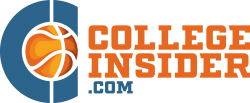Mastering Balance: Fitness, Nutrition, and Academics in College Sports for Ultimate Success
 Photo by Natalia Hawthorne on Pexels
Photo by Natalia Hawthorne on Pexels
Navigating the world of college sports is no small feat. We face the challenge of excelling in our athletic pursuits while juggling academic responsibilities and maintaining a healthy lifestyle. The pressure can feel overwhelming, but finding the right balance is essential for our success both on and off the field.
In this article, we’ll explore practical strategies to help us manage our fitness routines, nutrition, and academic commitments effectively. By understanding how to prioritize our time and resources, we can thrive in all areas of our lives. Let’s dive into the essentials of balancing these crucial aspects and discover how we can enhance our performance and well-being.
The Importance of Balance in College Sports
Balancing fitness, nutrition, and academics proves crucial for college athletes. Our athletic performance relies on training, but academic demands often challenge our schedules. Prioritizing balance helps us excel in both arenas.
Incorporating effective nutrition strategies strengthens our physical health. Consuming nutrient-dense foods, including options like bariatric weight loss protein bars, offers quick fuel for workouts and recovery. These protein-packed snacks support muscle growth and repair, making them vital for maintaining our fitness levels.
Fitness routines also require strategic planning. Scheduling workouts around academic obligations ensures we maximize our training time. Developing a consistent exercise routine not only enhances athletic performance but also improves mental focus in our studies.
Managing stress effectively leads to better outcomes in academics and athletics. Techniques like mindfulness and time management help create a structured environment. Staying organized allows us to allocate time efficiently for practices, study sessions, and personal time.
Utilizing resources available through our athletic programs enhances our balance. Coaches, nutritionists, and academic advisors provide valuable guidance tailored to our unique circumstances. By leaning on these support systems, we can navigate the complexities of being a college athlete.
Balancing these aspects requires commitment and adaptability, but doing so cultivates well-rounded individuals prepared for success both on and off the field.
Fitness: Training Regimens and Physical Health
 Photo by Emma Simpson on Unsplash
Photo by Emma Simpson on Unsplash
We focus on comprehensive fitness regimens that enhance athletic performance and support overall health. Effective training includes structured plans that build strength, improve endurance, and develop agility.
Strength and Conditioning
Strength and conditioning form the backbone of any athlete's training program. We emphasize compound movements like squats, deadlifts, and bench presses to build core strength and enhance muscle performance. Utilizing high-repetition workouts aids in endurance building while also keeping muscles fit for competitive demands. For athletes who prioritize both performance and presentation, finding muscle fit dress shirts that complement their physique can be just as important off the field. Incorporating specialized equipment, such as resistance bands and kettlebells, can diversify routines and target specific muscle groups efficiently. Regular assessments help us track progress and adjust training intensity accordingly. Additionally, incorporating nutrient-dense snacks, like bariatric weight loss protein bars, can fuel recovery and support muscle growth.
Injury Prevention and Recovery
Injury prevention remains critical in maintaining optimal physical health. We prioritize warm-ups and cool-downs, focusing on flexibility exercises and mobility drills to reduce injury risk. Engaging in sport-specific training ensures that we prepare our bodies for the demands of competition while emphasizing proper technique and biomechanics. Moreover, recognizing the signs of fatigue and addressing them promptly aids in preventing overuse injuries. Recovery protocols, including adequate rest, hydration, and nutrition, fortify our resilience. Active recovery days, combined with targeted physical therapy, can accelerate our return to peak performance, promoting long-term athletic longevity.
Nutrition: Fueling the Athlete
Nutrition plays a vital role in fueling college athletes, enabling peak performance and recovery. Focusing on the right nutrients helps us stay at the top of our game.
Essential Nutrients for Performance
We prioritize essential nutrients such as carbohydrates, proteins, and fats. Carbohydrates serve as the primary energy source during intense training sessions. Proteins facilitate muscle repair and recovery, making bariatric weight loss protein bars an ideal snack for quick post-workout nutrition. Healthy fats support hormonal balance and provide sustained energy. Additionally, vitamins and minerals enhance immune function and overall health. A balanced intake of these nutrients boosts our athletic performance and supports academic responsibilities.
Meal Planning and Timing
We develop meal plans that align with our training schedules to optimize energy levels. Pre-workout meals should be rich in carbohydrates and moderate in protein, eaten 1-3 hours before exercise. Post-workout nutrition requires a focus on recovery, incorporating protein-rich snacks, like bariatric weight loss protein bars, combined with carbohydrates within 30 minutes after training. Regular meal timing throughout the day maintains energy levels for both sports and academics, ensuring we remain focused and energized.
Academics: The Student-Athlete Dilemma
Balancing academics and athletics poses significant challenges for student-athletes. Navigating rigorous schedules requires effective time management and resource utilization.
Time Management Strategies
We can adopt several time management strategies to excel in both academics and athletics. Prioritizing tasks through lists helps clarify daily goals. Allocating specific time slots for study, training, and rest ensures structured routines. Utilizing tools like calendars and apps enables us to track deadlines and appointments. Setting short, actionable study periods followed by breaks can boost focus and retention. Incorporating efficient nutrition options, such as bariatric weight loss protein bars, provides quick energy, allowing us to stay fueled during busy schedules.
Support Systems and Resources
Support systems significantly enhance our ability to manage academic and athletic demands. Engaging with academic advisors provides guidance on course selection and workload management. Connecting with fellow student-athletes fosters a sense of community and shared experience. Accessing university resources, including tutoring centers and counseling services, aids in managing stress and academic challenges. Additionally, leveraging insights from coaches and nutritionists helps align our training with academic objectives, ensuring we maximize performance across both areas. For more insights on this topic, check out the resources available at the NCAA.


